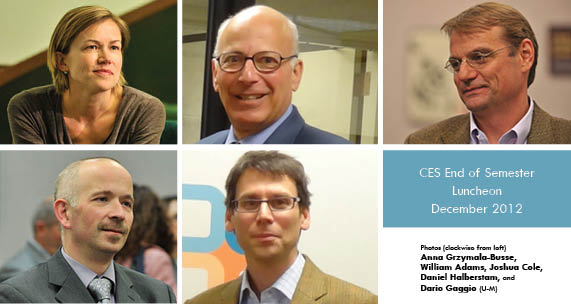There has been, of course, no single “European Crisis” in the past several years. The banking crisis that spread from the United States to Europe in 2008, and the sovereign debt crises that spread from Greece to Portugal and Italy after 2009 are different from the punctured real estate bubbles and bank bailouts that tripped up the Spanish and Irish economies during the same period. Together, however, these concurrent crises have revealed how fragile the idea of a united Europe is in the present, both as a monetary union and as a political ideal. Many have asserted that the answer to the current problems faced by the Eurozone is “more Europe” even as new fissures have opened up between the North and the South, making it difficult to imagine what kinds of policies or institutions might make “more Europe” possible.
Many economists have not been able to resist an “I told you so,” pointing out that Europe is not and has never been an “optimal currency zone.” Political scientists point out that we should not expect democratically elected leaders of sovereign nations to spearhead costly measures to preserve Europe when their own voters would bear the brunt of those costs. Together, such diagnoses have led some to the depressing conclusion that the only thing holding Europe together at this point is the assumption that the short-term costs of a breakup are higher than the costs of continuing to muddle through with the current policies of fiscal consolidation and budgetary austerity. Meanwhile, there has been no shortage of historians who have pointed out the similarities between the present moment and the 1930s, when the democratic nations of Europe failed to contain the effects of similarly bewildering economic crisis, with fatal consequences for all.
At CES’s End of Semester Luncheon, a distinguished panel of experts from the University of Michigan’s faculty will discuss the on-going crises in Europe from the perspective of their respective disciplines. What do economists agree on, and where do they disagree in their analysis of the current situation? How has the present crisis changed the story that historians, political scientists and specialists in European constitutional law tell about the trajectory of European integration in the second half of the twentieth century?
Please join us at CES’s End of Semester Luncheon on Tuesday, December 11 at 12-1:30 pm at 1636 International Institute. Speakers include James Adams (Department of Economics), Dario Gaggio (Department of History), Anna Grzymala-Busse (Department of Political Science), and Daniel Halberstam (Law School).

